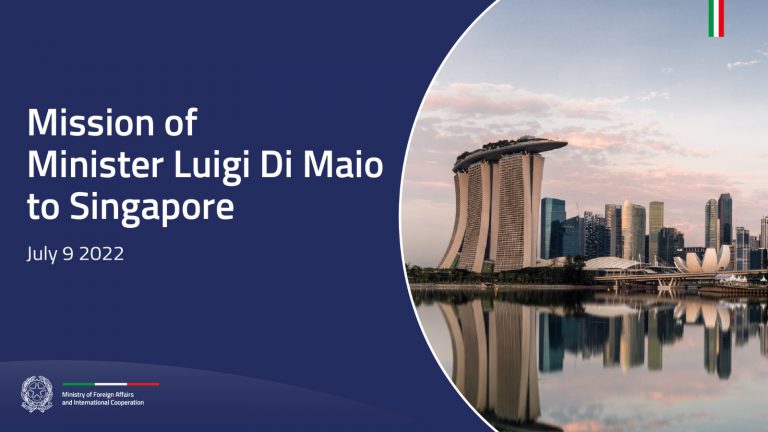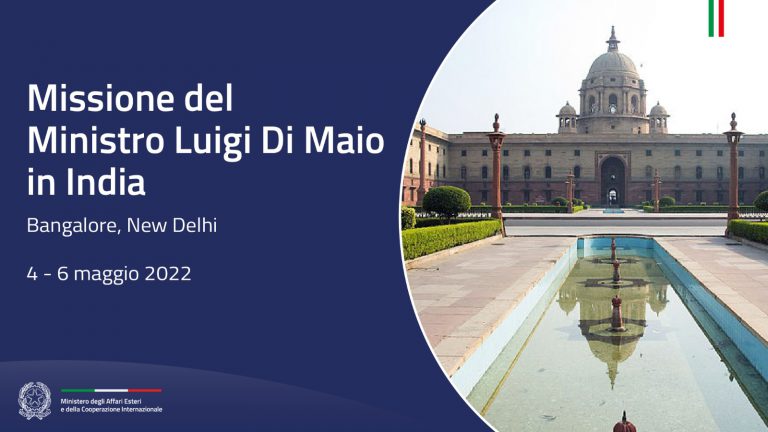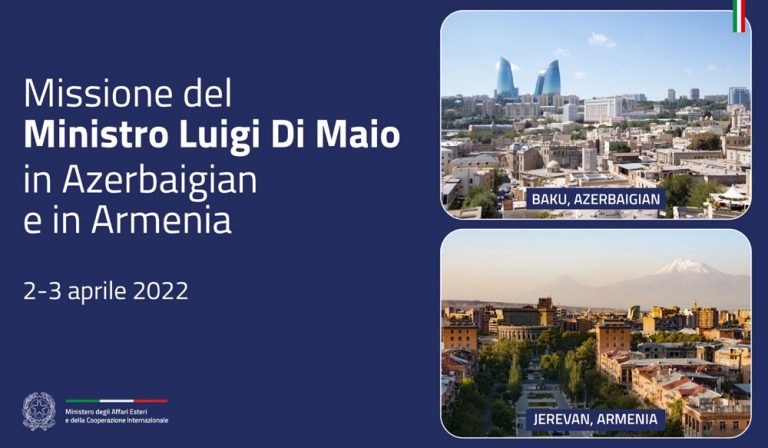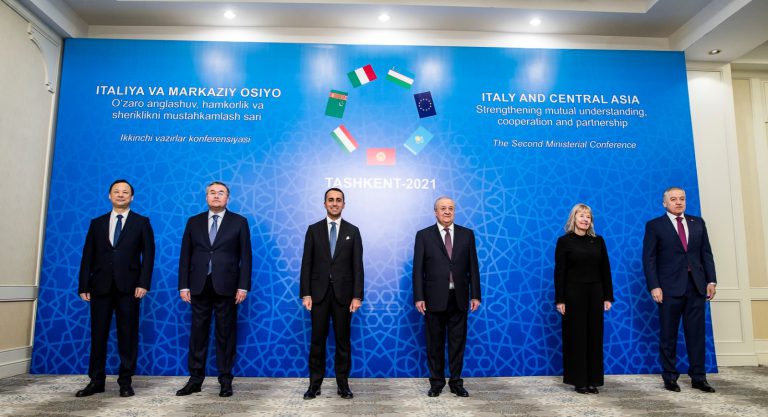Q) Italy is Indonesia’s biggest CPO importer in EU. But earlier this month, the European Parliament approved the draft measures to ban the use of palm oil in biofuels in 2021. As the largest producer of palm oil, Indonesia believes this is a protectionist move. What’s Italy’s position in this matter, and will it participate in ratifying the bill?
A) We are aware of how sensitive the issue of palm oil is, given its significant economic and social impact. First of all, let me clarify that the recent vote of the European Parliament does not represent the final outcome of the legislative process on the revision of the EU Renewable Energy Directive. Further discussions are foreseen, before the Directive is passed.
Secondly, the European Parliament vote does not ban the use of palm oil but, rather, excludes biofuels produced from palm oil from being accounted towards the EU Renewable Energy targets.
I think we all agree on the objectives: to foster clean energy, fight deforestation and promote sustainable production. I am happy to acknowledge that a number of very positive initiatives have been undertaken already by the Indonesian government – such as “green certifications” – to reduce the impact of deforestation. In the course of discussions on the new EU Directive, Italy has adopted a balanced and constructive approach, looking for a viable compromise, taking into account the view of all stakeholders. You can rest assured we will continue to do so in the forthcoming legislative process.
Q) Regarding the ongoing Indonesia and EU Comprehensive Economic Partnership Agreement (CEPA) negotiation, what can be expected for Indonesia-Italy trade benefits and what are the prominent issues for Italy?
A) The successful adoption of a Comprehensive Economic Partnership Agreement (CEPA) between Indonesia and the European Union would pave the way for new outstanding opportunities, by lowering tariff and non-tariff barriers, often responsible for discouraging trade and investment. Once agreed, CEPA would unleash the full potential offered by the complementarity of our economic systems. CEPA will also send a clear message of our shared commitment towards open markets and a rules-based international trade system, against all forms of protectionism.
Q) Does Italy have a particular target on how much its trade balance with Indonesia in the next 5 years? To what extent are you optimistic about reaching it?
A) Italy is the third largest trading partner of Indonesia in the EU. Bilateral trade reached the significant total of 2,8 billion € in 2016. However, there is still much room for improvement, as Indonesia’s rate of economic growth suggests. Industrial machinery represent one of our key exports throughout the world. In Indonesia they should find an ever more promising market. Indonesia’s ambitious plans to foster domestic and regional connectivity should also open new opportunities for bilateral partnerships. Italian companies are already present in your country in key sectors, such as energy and infrastructures, consumer goods, financial services. We need to facilitate joint ventures between our economic players in order to consolidate the present trend. We can work together to increase the flow of mutual investment.
Q) Over the years, Indonesia and Italy have also been holding an interfaith dialogues and shared experiences in managing cultural and religious diversity. Do you think the two countries have progressed in this context?
A) We strongly believe in the importance of inter-religious and inter-cultural dialogue in order to strengthen mutual knowledge and as an antidote against radicalization and discrimination. Indonesia plays a central role in promoting globally the values of tolerance and in countering the narrative of fundamentalism.
We have a very fruitful cooperation in this field. In 2015, the President of the Italian Republic, Sergio Mattarella, inaugurated here in Jakarta the first joint event on religious dialogue. Last October, we co-organized in Rome a seminar on “Pluralism and integration in Indonesian and Italian societies: perspective, opportunities and challenges”, together with the NGO Community of Sant’Egidio. We shall continue to work together, sharing experiences and best practices.
Q) In Indonesia, the Italian Embassy often holds events engaging youths on various topics, like arts or architecture. To what extent does Italy view youths’ involvement in enhancing Italy-Indonesia ties?
A) We believe in the importance of cultural relations as an instrument to strengthen ties between our countries. We are happy to note the growing interest shown by young Indonesians for studying in Italy. The Italian Government has decided to increase the number of scholarships available, in order to meet the demand. International student mobility is a precious asset for all societies. We have included Indonesia in our program “Invest Your Talent In Italy”, which offers students a period of internship in Italian companies. At the same time, we shall encourage a robust flow of Italian students to Indonesia. The teaching of foreign languages is another important tool to promote intercultural dialogue: we will continue to support initiatives aimed at the introduction of Italian language courses in the local education system.
Q) According to Indonesian Chamber of Commerce last year, Italy wants to increase investment in fashion and automotive both in Indonesia and ASEAN. Last year, the Italian Trade Agency (ITA) also expressed their interest to increase cooperation with Indonesian counterparts, particularly in printing and packaging. It seems that industry and creative economy have become one of the strategic sectors for the two countries. Do you agree about that? To what extent is Indonesia potential to be Italy’s trade partner on such sectors?
A) Italy is the second largest manufacturing country in the European Union (after Germany). Italian companies, including SMEs, feature among the top technology innovators in the world, with state-of-the-art industrial solutions. I think there is fertile ground for industrial collaboration with Indonesia. We are also leaders in the creative industry, which encompasses activities such as design, architecture, fashion but also gastronomy, performative arts and others. We are discussing together with our Indonesian partners how best to encourage cooperation, by developing a more structured framework for our already fruitful exchanges.
Q) Immigration is one of strategic issue in the EU. In your last meeting with Foreign Minister Retno Marsudi, you also discussed the handling of migration issues and both countries was said to agreed on the importance of cooperating with the home country of immigrants. What are some concrete cooperation we can expect the two countries make regarding this issue?
A) Migration is a long-term, global phenomenon, which requires a joint response by the international community as a whole, according to the principle of shared responsibility. To this end, we believe that strengthening cooperation and dialogue among countries of origin, transit and destination of migration flows is fundamental. In this framework, Italy has been promoting a strengthened partnership with countries of origin and transit, aimed at an integrated border management, fight against human trafficking, protection of migrants and efforts to address the root causes of migration. Italy also actively participates in the negotiations at the UN that will lead to the adoption of the Global Compact on migration. The principles that we promote are: partnership with the countries of origin and transit and shared responsibility. In particular, we believe that it is necessary to combine solidarity and security, building the consensus of the international community around the protection of human rights, the link between migration and development, the balance between the right to mobility and the right of States to determine criteria for admission of people in their territory.





